Meet our distinguished speakers of the 2025 Neurological Sciences Grand Rounds, each bringing unparalleled expertise and groundbreaking insights to the forefront of neurological research and clinical practice. Join us as we learn from these thought leaders and pioneers who are shaping the future of neuroscience.
-
January 7, 2025
Cellular Engineering of Autologous Glioblastoma Specific T cells
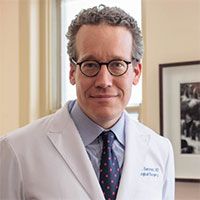
Carlos Sanchez, MD
- GW/MFA
- Biography
-
Carlos E. Sanchez, MD, is an attending neurosurgeon in the Department of Neurosurgery and a principal investigator at the Cell Enhancement and Technologies for Immunotherapy Program at the George Washington University Cancer Center. He specializes in surgical care for patients with benign and malignant brain tumors. Fellowship trained in pediatric neurosurgery, Dr. Sanchez served as the director of skull base surgery at Children's National Hospital from 2018-2021 and specializes in caring for young adult and adult patients with neurosurgical conditions previously treated in childhood. Dr. Sanchez completed his scientific training at Massachusetts General Hospital under the guidance of Bob Carter, MD, Ph.D., where he was a Ruth L. Kirschstein National Research Award Scholar. He subsequently was awarded a three-year NIH KL2 award through the Clinical and Translational Science Institute at Children's National, under the mentorship of Catherine Bollard, MD, MBChB. His scientific focus is the development of adoptive cell therapy technologies for brain tumors. Dr. Sanchez is a S.G.E. and serves as a consultant to the FDA, for the Cellular Tissue and Gene Therapies Advisory Committee (CTGTAC). Beyond his clinical work, Dr. Sanchez serves on the Board of Advisors for Columbia University, Mailman School of Public Health.
-
January 14, 2025

Mark J. Edwards, MBBS, PhD, BSc(Hons)
- King's College London
-
January 21, 2025
Algorithmic approach to Drug-Resistant Epilepsy treatments. What do we do when medications fail to stop seizures?
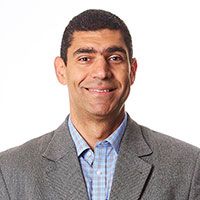
Ahmed Abdelmoity, MD, MBA, MS, FAAP, FAES
- University of Missouri at Kansas City
- Biography
-
Dr. Abdelmoity is Professor and Division Director of Child Neurology at the University of Missouri at Kansas City. He is Vice President of Clinical Access, Associate Chair of Department of Pediatrics, and Director of the level 4 Epilepsy Center at Children’s Mercy Hospital, also in Kansas City. He earned his medical degree at Cairo University in Egypt. Completed his Child Neurology residency at the University of Texas Southwestern Medical Center at Dallas, and Baylor College of Medicine. He completed Clinical Neurophysiology fellowship at Baylor College of Medicine and a Post-Doctoral fellowship in physiology at the University of Texas Southwestern Medical Center. He is Diplomate of the ABPN in Neurology with Special Qualifications in Child Neurology, Clinical Neurophysiology and in Epilepsy. He finished his Executive MBA in Healthcare Management and a Masters in Healthcare Leadership from the University of Texas at Dallas in 2023. He holds the Melva Dessenko O’Donnell Endowed Chair in Neurology. He serves on several epilepsy and neurology societies and associations, including AES where he chairs the Epilepsy Therapies Symposium. Chair of the Professional advisory board for the Epilepsy Foundation, Missouri and Kansas Chapter. He serves on the board of directors for the National Association for Epilepsy Centers (NAEC). He is the principle investigator of several original research projects, and several federally funded grants, with several key original peer reviewed publications and book chapters.
-
January 28, 2025
Headache Medicine in the LGBTQIA Community: Sex, Drugs, and Everything in Between
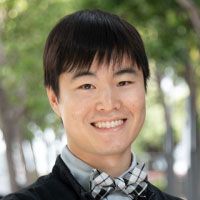
Victor Wang, MD
- Sutter East Bay Medical Group
-
February 4, 2025
TBD
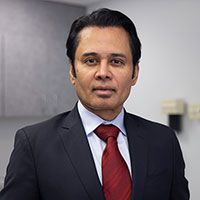
Saleem Abdulrauf, MD, FACS
- GW/MFA
-
February 11, 2025
TBD
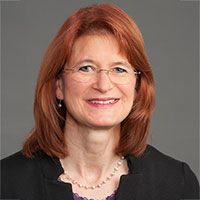
Cheryl Bushnell, MD
- Atrium Wake Forest Baptist Health
-
February 18, 2025
HFO and the Epilepsy Networks
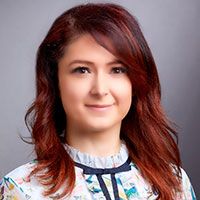
Aline Herlopian, MD
- Yale University
- Biography
-
Aline Herlopian is an Associate Professor of Neurology at Yale Comprehensive Epilepsy Center and Yale School of Medicine. She has completed her medical school at the American University of Beirut and her residency at the University of Arkansas for Medical Sciences. She received her clinical neurophysiology (EEG-track) and epilepsy training at Massachusetts General Hospital, Harvard School of Medicine. She later joined Yale School of Medicine as a faculty member in the Yale Comprehensive Epilepsy Center. In addition to her clinical and scholarly-research activities, she is the medical director of Yale EEG and Clinical Neurophysiology lab. She is also the director of the clinical trials in the Epilepsy division. Additionally, Dr Herlopian is a faculty affiliate of the Yale Institute for Global Health and is highly involved in collaborative work to enhance field of epilepsy in Armenia.
Her primary research interest is studying high-frequency oscillations as a hub or network and their association with the epileptogenic network and predictive value in determining surgical outcome. She is also investigating the role of thalamic nuclei in ictogenesis, ictal propagation and seizure termination. She is also interested in investigating electrographic and clinical differences in patients who have unresolved epilepsy type i.e. mesial frontal with rapid bilateral synchrony and primary generalized epilepsy type.
Dr. Herlopian has several peer-reviewed publications. She has authored and edited a textbook on epilepsy surgery, titled “Epilepsy Surgery: A Practical Case-Based Approach.” Dr Herlopian serves on the annual course committee and scientific committee of the AES and also the course committee of the ACNS.
-
February 25, 2025
The Underlying Cause of Multiple Sclerosis
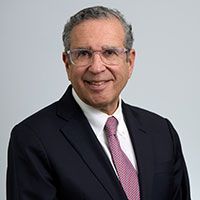
David Hafler, MD, FANA
- Yale University
- Biography
-
David A. Hafler, M.D. is the William S. and Lois Stiles Edgerly Professor and Chairman Department of Neurology and Professor of Immunobiology, Yale School of Medicine, and is the Neurologist-in-Chief of the Yale-New Haven Hospital. Hafler graduated magna cum laude in 1974 from Emory University with combined B.S. and M.Sc. degrees in biochemistry, and the University of Miami School of Medicine in 1978. He completed his internship in internal medicine at Johns Hopkins followed by a neurology residency at Cornell Medical Center-New York Hospital in New York. Hafler was trained in immunology with Henry Kunkel at the Rockefeller University and then at Harvard Medical School joining the Harvard faculty in 1984. He became the Breakstone Professorship of Neurology at Harvard 1999 and was a founding Associated Member of the Broad Institute at MIT. His discoveries in the pathogenesis and treatment of multiple sclerosis have led to fundamental understanding of the disease and the development of novel treatments. His seminal work includes identification of circulating human autoreactive T cells and the mechanisms that underlie their dysregulation with the discovery of human regulatory T cells. He co-led the discovery of genetic variants causing MS and demonstrated how these variants alter immune responses in relationship to environmental factors such as salt allowing activation of autoreactive T cells. Hafler was founder of the Federation of Clinical Immunology Societies and the International MS Genetic Consortium. He was a Jacob Javits Merit Award Recipient from the NIH and was awarded the Dystel Prize for MS research from the AAN, the University of Miami Annual Distinguished Alumni Award, the Raymond Adams Prize from the ANA and is the 2023 recipient of the 2023 AAI Steinman Award for Human Immunology Research. Hafler is an Honorary Member of the Scandinavian Society for Immunology a Fellow in the American Association of Immunologist, and has been elected to the AOA Society, the American Society of Clinical Investigation, The Association of American Physicians, and the National Academy of Medicine.
-
March 4, 2025
TBD

Dimitri Sigounas, MD
- GW/MFA
-
March 11, 2025
Not So Isolated RBD: Prodromal Synucleinopathy and Implications for Diagnosis and Prognosis in REM Sleep Behavior Disorder

Erik St. Louis, MD
- Mayo Clinic Rochester
- Biography
-
Erik K. St. Louis, M.D., M.S. is Director of the Mayo Sleep Behavior and Neurophysiology Research Laboratory, Professor and Consultant in Neurology and Sleep Medicine, Mayo Clinic College of Medicine and Science in Rochester, Minnesota, and and Director for Research and Scholarship in Wisconsin, Mayo Clinic Health System. Dr. St. Louis previously co-directed the Mayo Center for Sleep Medicine and the University of Iowa and Marshfield Clinic Comprehensive Epilepsy Programs. His research interests include REM sleep behavior disorder, and sleep, neurodegeneration and cognition, and epilepsy, under support of the NIH NIA, NINDS, and NHLBI, the American Academy of Sleep Medicine Foundation, Mayo Clinic CCaTS, and Spark, Inc. He has authored over 200 articles, 3 books, and 50 book chapters. Dr. St. Louis currently serves on several editorial and organizational boards and committees.
-
March 18, 2025
TBD
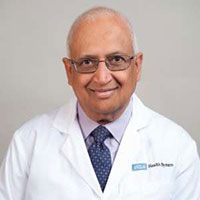
Raman Sankar, MD, PhD
- UCLA Geffen School of Medicine
-
March 25, 2025
Mobile Stroke Units
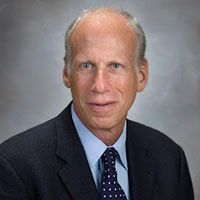
James Grotta, MD
- UT Houston/Memorial Hermann
-
april 1, 2025
TBD - ALS
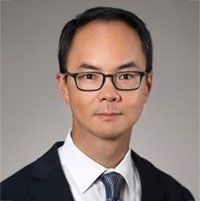
Justin Kwan, MD
- NIH
-
april 8, 2025
TBD
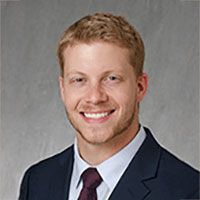
Chase Foster, MD
- Johns Hopkins
-
April 15, 2025
TBD
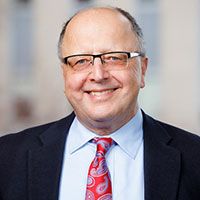
Pierre Fayad, MD
- University of Nebraska
-
april 22, 2025
Looking Beyond the Classically Studied Organ: Bedside-to-Bench Approaches to Study Electrical Disturbances in the Brain and Heart
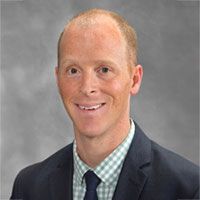
David Auerbach, MD
- SUNY Upstate Medical University
- Biography
-
David Auerbach is an Assistant Professor of Pharmacology and Medicine at SUNY Upstate Medical University. He is involved with and has chaired numerous epilepsy/SUDEP patient advocacy and scientific groups. Through interactions with the families of patients with severe genetic diseases, he developed the passion and determination to advance the understanding of electrical diseases of both the brain (seizures) and heart (arrhythmias.) His research program includes scientific approaches that span from molecular, cellular, animal, and clinical research approaches. He made important insights into the prevalence, risk factors, and mechanisms for seizures and cardiac arrhythmias. In genetic models of epilepsy, he showed it is critical to look outside the brain, as these mutations lead to alterations in cardiac electrical function. Following a bench-to-bedside paradigm, he reported cases of cardiac ECG abnormalities and near-lethal arrhythmias in patients with severe genetic forms of epilepsy. Applying his clinical database analytical skills, he demonstrated that patients with a classically studied inherited cardiac arrhythmia disease, Long QT Syndrome (LQTS), are at an increased risk of seizures. He developed a novel mutant rabbit model of LQTS, which reproduces the neuro-cardiac pathologies seen in LQTS patients. It enables him to conduct translational studies to investigate the mechanisms for arrhythmias and seizures in LQTS. He is passionate about building and mentoring a multi-disciplinary research team, recruiting people from around the world to Upstate, developing tools to improve health care for under-served populations, and advocating for epilepsy patients who are often socio-economically disadvantaged.
-
april 29, 2025
Closed Loop/adaptive DBS
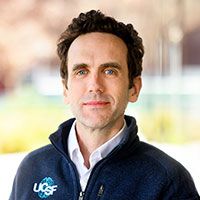
Simon Little, MBBS, MRCP, PhD
- University of California San Francisco
- Biography
-
Dr. Little is a neurologist and scientist specializing in the neural mechanisms underlying neurological disorders. His research focuses on personalizing treatments and neuromodulation therapies for conditions such as Parkinson’s disease, dystonia, tremor, and associated non-motor symptoms like depression, apathy, anxiety, and sleep dysfunction. He earned his Master’s degree in Experimental Psychology from Cambridge University and completed his clinical medicine training at University College London. Dr. Little received his PhD from the University of Oxford, where he developed the first adaptive deep brain stimulation (DBS) algorithm for Parkinson’s disease, contributing to new translational neuroscience approaches currently being tested in international trials. Following his PhD, Dr. Little served as a Clinical Lecturer at University College London, conducting advanced human brain imaging studies to identify dynamic brain oscillation patterns related to movement and decision-making. Since joining UCSF in 2019, Dr. Little has pioneered the use of machine learning in brain recording and adaptive DBS technologies. His work has led to the first at-home symptom decoding and effective adaptive DBS in fully embedded devices for Parkinson’s disease and dystonia. Dr. Little is also engaged in projects exploring the neural basis of mood, movement, anxiety, and sleep, aiming to develop targeted and personalized neurostimulation therapies to enhance patient outcomes in neurological care.
-
May 6, 2025
Surgical approaches for treatment resistant epilepsy

Donald C. Shields, MD, PhD, MBA
- Spartanburg Regional Healthcare
- Biography
-
Donald C. Shields, MD, PhD, MBA obtained his graduate and medical degrees from the Medical University of South Carolina. He completed an internship in general surgery and residency in neurosurgery at UCLA Medical Center, with fellowship training in functional neurosurgery at Massachusetts General Hospital. At The George Washington University Department of Neurosurgery, Dr. Shields specialized in implantation of deep brain stimulation devices for treatment resistant epilepsy, movement disorders, mood disorders such as obsessive-compulsive disorder and major depression. He is currently an affiliate associate professor of neurosurgery at the Medical University of South Carolina.
-
May 13, 2025
Interesting Subjects within NCC
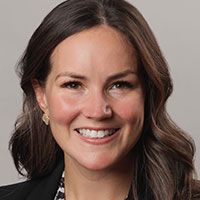
Casey Albin, MD
- Emory University School of Medicine
-
May 20, 2025
Developmental and Epileptic Encephalopathies in the Post-Genomic Era
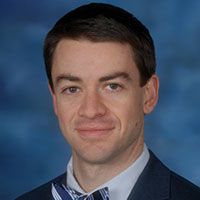
John Schreiber, MD
- Children's National Hospital
-
May 27, 2025
TBD
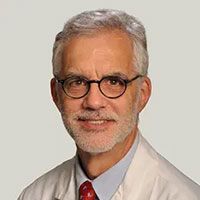
James Mastrianni, MD, PhD
- University of Chicago
-
June 3, 2025
TBD
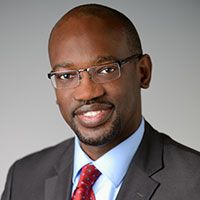
Chima Oluigbo, MD, FRCSC, FAANS
- Children's National Hospital
-
June 10, 2025
TBD
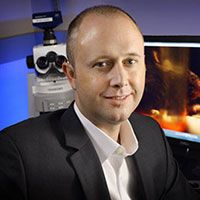
Steven Zeiler, MD, PhD
- Johns Hopkins
-
June 17, 2025
Awareness, Consciousness, and Cognizance: An Epileptologist's Perspective
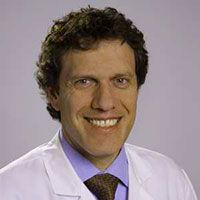
John Stern, MD
- UCLA Geffen School of Medicine
- Biography
-
Dr. John Stern is Professor and Director of the Epilepsy Clinical Program in the Department of Neurology at the Geffen School of Medicine at the University of California, Los Angeles (UCLA). He is also Director of UCLA’s Epilepsy Fellowship Training Program and Medical Director of UCLA’s Seizure Disorder Center. Dr. Stern’s education includes concurrent bachelor’s and master’s degrees from Wesleyan University with a master’s thesis in physical biochemistry. His medical degree is from the Icahn School of Medicine at Mount Sinai, medical internship was at Beth Israel Medical Center in New York, and neurology residency and epilepsy and clinical neurophysiology fellowship were at UCLA. Focused on seizures, epilepsy, and clinical neurophysiology, Dr. Stern maintains an active clinical practice that includes outpatient and inpatient care for seizures and epilepsy. He also has extensive experience as an investigator in clinical research studies and clinical trials related to epilepsy diagnosis and treatment. His 335 publications include 6 books and 195 peer-reviewed research papers, chapters, and reviews. Among the publications, one was awarded best clinical research publication of the year by Epilepsia Open, and another was recognized as among the best of the year by Epilepsia. For his excellence in teaching, he has received the highest teaching awards from UCLA’s Geffen School of Medicine and from UCLA’s Department of Neurology. He has lectured widely internationally and in most of the United States, and he has been interviewed by Reuters, National Public Radio, NBC TV, New York Times, Boston Globe, Chicago Tribune, and other news organizations. Dr. Stern is a fellow of the American Neurological Association, the American Academy of Neurology, and the American Epilepsy Society. He serves as Chair of the American Epilepsy Society’s Treatments Committee, on the National Association of Epilepsy Center’s Accreditations Committee, and on the editorial board for MedLink Neurology. He has served on the Professional Advisory Board for the Epilepsy Foundation and the Board of Directors for the Epilepsy Foundation of Greater Los Angeles.
-
June 24, 2025
TBD
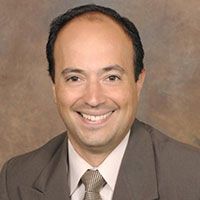
Alberto Espay, MD
- University of Cincinnati